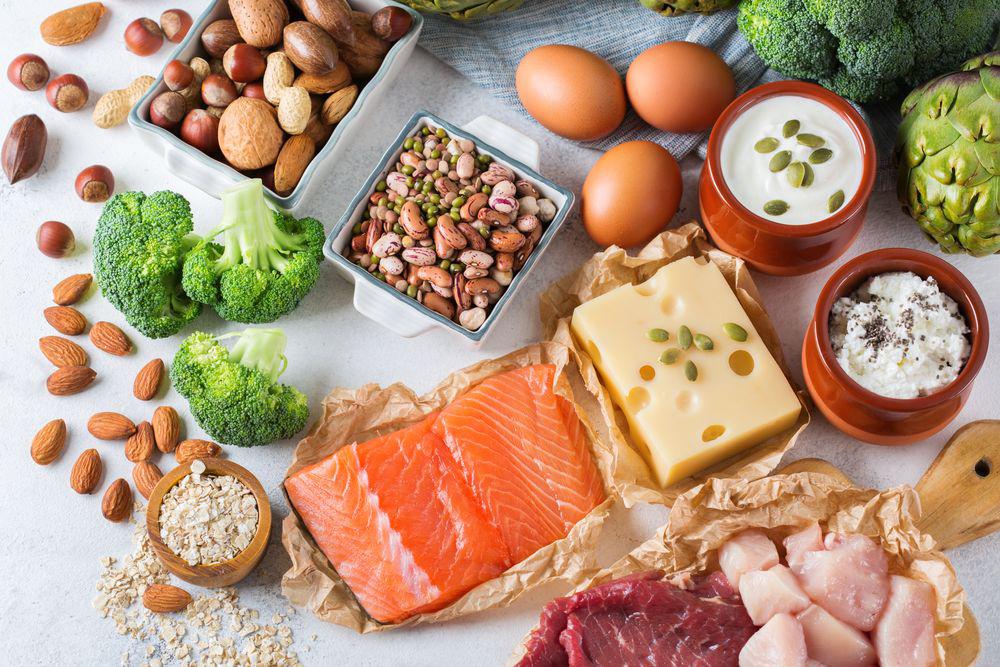
How Do You Know If You're Really Hungry? It's normal to experience hunger. It is your body's signal that it's time to refuel. However, there is a considerable probability that you will gain weight if you experience food cravings even after eating.
The most difficult aspect of a weight loss plan is likely learning to regulate appetite. Some people complain about calorie counting and food diaries, while others complain about finding time to exercise.
Feeling hungry is not synonymous with "wanting something to eat." There are few distinguishing characteristics between stress-related or emotional hunger and actual physical hunger.
First, consider the following questions:
· Does your stomach rumble?
· Is your energy level dipping?
· Do you have a little bit of “brain fog” or feel “cranky”?
If any of these situations occur, you will likely need fuel. These are all typical signs of real hunger. When you feel this way, your body will likely respond to food, and you will likely feel better. If you are eating for reasons other than hunger, such as boredom, anger, or depression, it is unlikely that food will make you feel less bored, angry, or depressed. Or, if it does, you will likely not feel this way for very long.
If you're eating out of emotion or stress, or because something looks or smells appealing, you're probably not actually hungry. In this scenario, you will need to find alternative techniques to resist the need to eat.
8 Ways to Curb Your Appetite Naturally
Hunger control aims to alleviate actual hunger: the rumbling stomach, poor energy, and anger that frequently accompany a depleted body. If your aim is to reduce weight through calorie restriction, you will need to acquire appropriate ways for preventing hunger, as actual hunger is a natural driver of eating.
Here are eight strategies for controlling your hunger and appetite.
1. Eat Protein as a Hunger-buster.
Protein satisfies hunger more effectively than carbohydrates or fat, so incorporate lean protein throughout each meal and snack. In fact, protein not only impacts your digestive system but also your brain chemistry in a way that makes you feel full and mentally alert.
2. Don't Skip Breakfast.
Skipping breakfast can cause you to consume extra calories throughout the day if you are unaware. Eating first thing in the morning helps stimulate your metabolism and stave off hunger feelings that lead to poor food choices later in the day.
3. Fill Your Body with Hydrating, High-fiber Foods.
Water and fiber are calorie-free. However, watery, high-fiber foods are "bulky" and occupy more stomach space, so they make you feel full. Due to their high water and fiber content, the majority of vegetables (with the exception of starchy vegetables such as potatoes, corn, and peas) have very few calories per serving. Watery fruits, such as melons and pineapple, and high-fiber fruits, such as berries, can also help you feel full with a low number of calories.
4. Physical Activity Can Help Regulate Hunger.
Physical activity can decrease hunger hormones, hence reducing appetite. But in order to continue physical exertion, the body must be adequately fed. Sometimes, in an attempt to lose weight, individuals reduce their caloric intake to the point where they lack the energy to exercise. Thus, the entire operation fails. People frequently say that exercise makes them hungry and causes them to eat more. Usually, however, this is due to improper fueling before and after their exercises.
5. Drink Fluids to Reduce Your Hunger.
Drinking fluids with meals may increase the feeling of fullness. And other individuals mistake thirst for hunger, so even if their bodies crave a drink, they end up eating. That is less likely to occur if you remain hydrated.
6. Eating Small, Frequent Meals Can Help Curb Your Appetite.
Eating little meals every several hours helps maintain more consistent blood sugar levels throughout the day. This is essential because drops in blood sugar can produce intense hunger. Even if you believe that a smaller amount of food will not be sufficient to satisfy your hunger, knowing that you will be eating again within a few hours often makes it easier to control your desire.
7. Stay on Course.
Maintain course. Some variation in our diet is beneficial and even healthy. But consuming multiple dishes during a meal can lead you astray. Unless it's a low-calorie salad or broth-based soup, adding a course to your meal typically increases the overall number of calories you consume at that meal.
8. Get Milk (or other low-fat dairy foods).
Increasing your consumption of low-fat dairy products is a wonderful method to consume more whey and casein, two proteins believed to lower hunger. And drinking milk may be particularly beneficial. Recent research indicates that whey, the liquid component of milk, is more effective than casein at suppressing appetite.
Appetite and hunger are typical physiological functions. Generally, they indicate that your body requires energy and that it's time to eat. These recommendations are only a few simple techniques to lessen your appetite and hunger during times when you perceive these sensations to be over average.
References:
www.webmd.com/diet/features/top-10-ways-to-deal-with-hunger
https://iamherbalifenutrition.com/healthy-weight/control-hunger/
www.healthline.com/nutrition/ways-reduce-hunger-appetite#TOC_TITLE_HDR_20